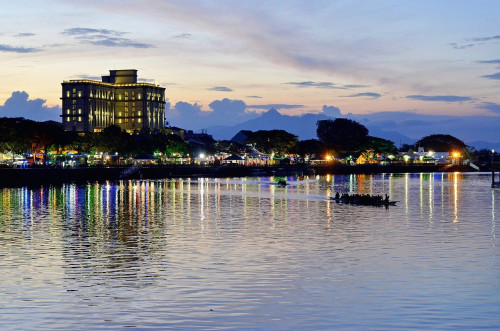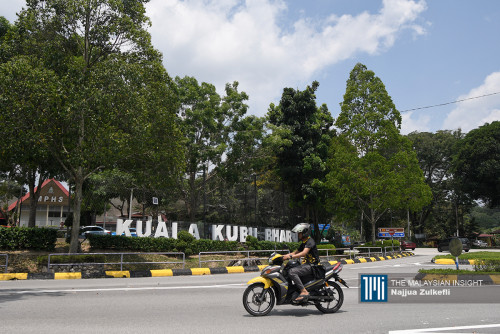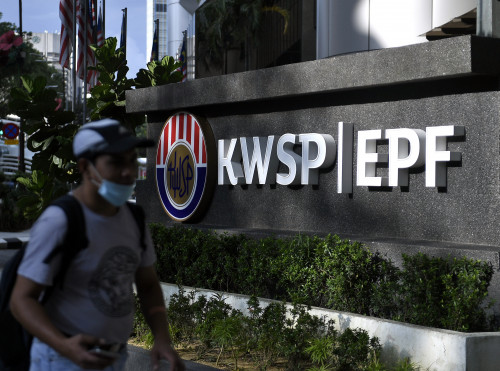THE late Palestinian-American critic Edward Said in his seminal text Orientalism writes that “history is made by men and women, just as it can also be unmade and rewritten, always with various silence and elisions, always with shapes imposed and disfigurements tolerated.”
The framing and adscription of events not only shape a nation’s collective historical memory but also play a role towards understanding our own identities, heritage and the legitimacy of our institutions.
Our history textbooks, thus, are among the most direct mechanisms used to formalise an official narrative of the nation-state, especially for something as young and tenuous as ‘Malaysia’.
In Mark Teh's A Notional History, these concepts are placed under a microscope. The play features performances from graphic artist Fahmi Reza, musician Faiq Shazwan Kuhiri and filmmaker Rahmah Pauzi.
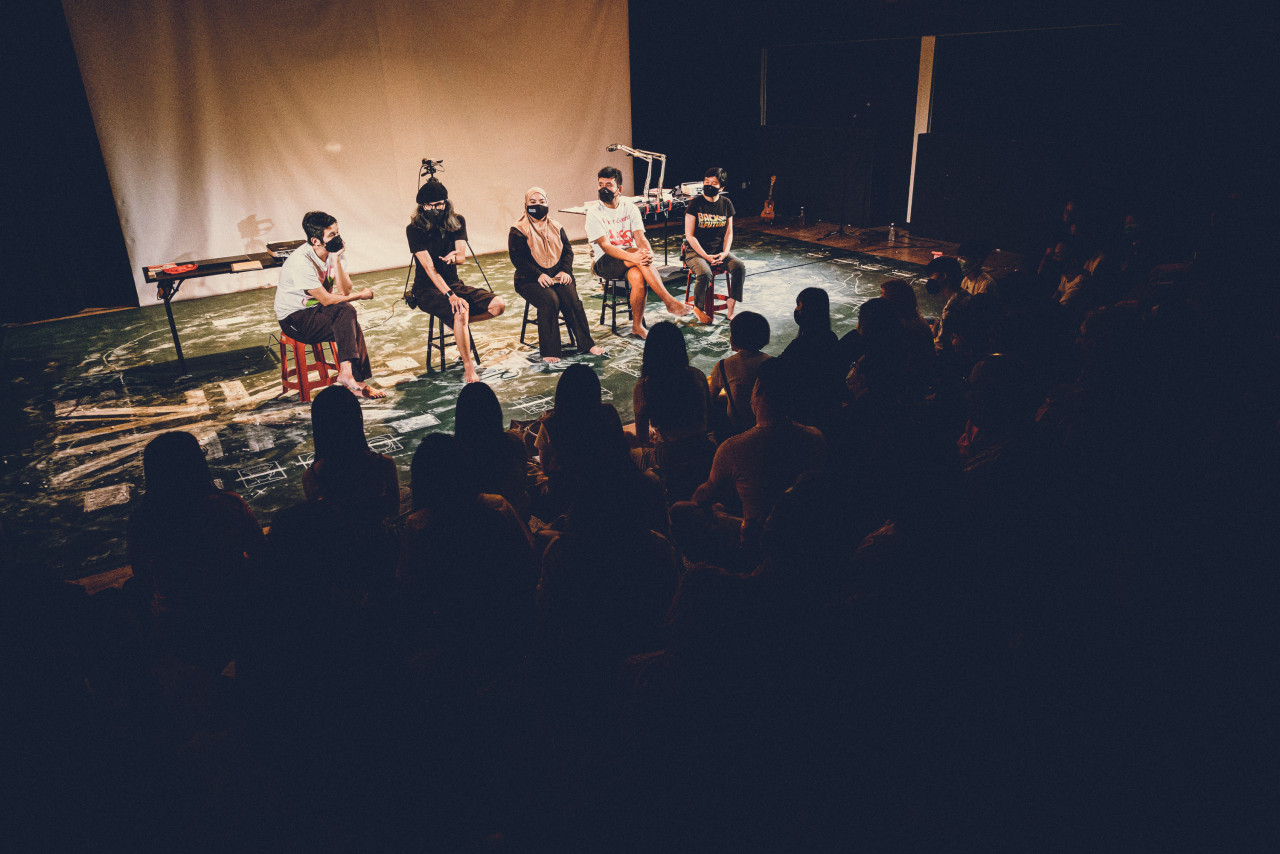
The production was first staged in Yokohama and Jakarta back in 2019. Last year, it saw multiple stagings in Kuala Lumpur, Georgetown and Brussels (Belgium). It returns for another time this weekend, before touring Bangkok and Seoul.
In an exclusive interview with The Vibes, Mark discusses in detail his early inspirations, the lengthy and arduous process of research and the challenges of engaging with (Malaysian) history.
The Vibes: What inspired the creation of A Notional History? Could you walk us through the genesis of the play?
Mark Teh (MT): A Notional History is the latest in a series of projects that my collaborators and I have done over the two decades that investigate the Malayan Emergency of 1948-1960, and its continued afterlives in contemporary Malaysia.
Many major events and turns took place during those 12 years: war, independence, revolution, civil war, decolonisation, state formation, the ‘golden age’ of Malayan-Singaporean cinema, and much more – all against the backdrop of the regional and global Cold War.
Some of the projects we have made include a series of performances around the 1955 Baling Talks, 10 Tahun Sebelum Merdeka (directed by Fahmi Reza), the Emergency Festival, and more.
A Notional History takes as its starting point the changes to official Malaysian school textbooks – specifically, the history textbooks – in 2020, after the first change in government at the federal level after 61 years.
The process to revise the education syllabus had already started under the previous Najib Razak-led Barisan Nasional regime – for example, Form 1 to Form 3 textbooks had been updated in successive years.
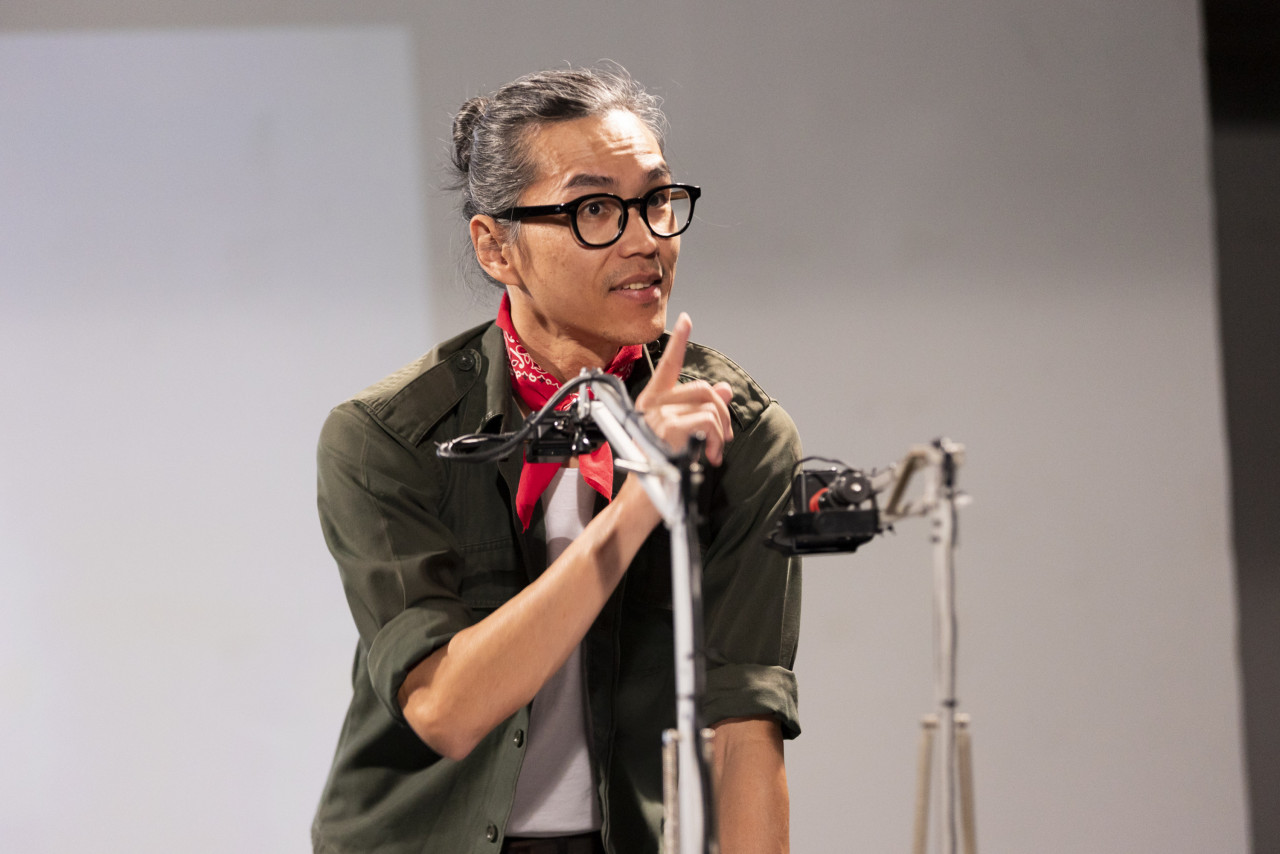
But there was a lot of curiosity and anxiety about what might change in 2020 when the Form 4 textbook – which focuses on World War II and Merdeka – would be published, under the watch of the then-new Pakatan Harapan government.
What would be included, excluded, rewritten in the textbooks? In 2018, there had been a ‘Should We Rewrite History Textbooks?’ forum that took place in KL, and one of the panelists was my close friend Fahmi Reza.
I attended the forum, and was inspired by what transpired at the forum, and the issues raised. So, in the performance, we dissect the two history textbooks – the one used before 2020, and the one introduced in 2020 – via the perspectives of the three performers.
They also share footage from an unfinished documentary made in 2008 where several people who went into the jungle in 1948 to fight the British are interviewed.
At the time of the interviews, these were people in their 70s and 80s, who lived in exile in Southern Thailand – and who are excluded from the official historical narrative of Malaysia.
Most of them have passed away by now. The performance brings together these three elements – the performers’ own experiences; the history textbooks; and the interviews with these exiled revolutionaries.
TV: How did you proceed with the research and writing process?
MT: As these group of collaborators have worked together for a very long time – close to 20 years – you can say that the research has been cumulative over that period as well.
Over that period, many reappraisals of Malaysian history have taken place – new books, memoirs and studies have been published that present alternative or marginalised or inconvenient histories; as well as work by artists and documentary filmmakers that explore the cultural and everyday dimensions of the Emergency and its legacy.
This work has been done by people based in Malaysia and abroad.
We read through many of these publications; and went up to Southern Thailand several times between 2004 to 2010 to interview the exiled revolutionaries.
In many ways, we see ourselves not only as artists or actors onstage in the conventional sense, but rather as social actors – who also function as amateur historians, detectives, collectors of materials, stories and artefacts, and ethnographers when we conduct research and fieldwork for our creative projects.
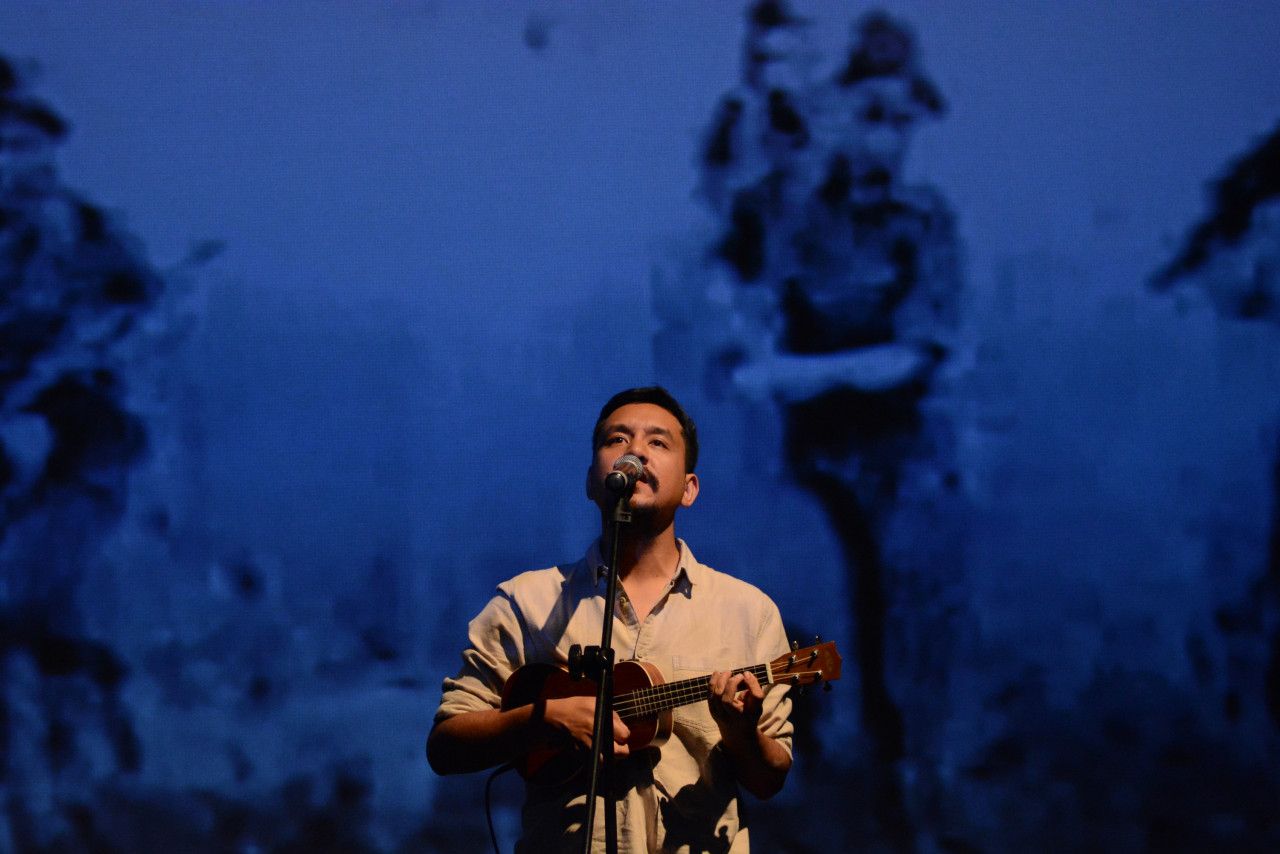
The three performers ‘perform’ as themselves – Fahmi Reza the activist; Rahmah Pauzi the documentary filmmaker and Faiq Syazwan Kuhiri the performer/musician – and they share their own research or encounters with the textbooks or exiled revolutionaries, or the larger subject of history.
The creation process is very much a collaborative one – with different team members bringing in material that they are interested to explore with the larger group: history textbooks, interview footage with the exiled revolutionaries, personal photos, songs from the Emergency era, fictional films made about the Emergency, and so on.
We then went through a long process of mapping these materials, considering which ones were most resonant, interesting, powerful, or strange, and devised a performance from there.
TV: How did the team approach the task of representing history and similarly avoiding the pitfalls of revisionism?
MT: We always attempt to approach it subjectively, ethically, and aesthetically.
TV: Could you elaborate on the role of technology, specifically the use of archival video, published textual materials, and digital images, in shaping the performance of A Notional History? Was its use always considered or did that come later in the process? In your opinion, how does it add to the audience's experiences and interpretation of the material?
MT: As alluded to earlier – the use of technology, video and other found materials (online or offline) is a feature of our work from very early on in the process.
Our team includes many people who have a background in video making – these include all three performers, as well as our lighting and multimedia designer Syamsul Azhar.
Technology obviously can have many effects and affects on a performance, but we try to work with it judiciously and avoid spectacle.
Perhaps the best way to respond to this question for me is to actually consider the ‘documentary’ form as a technology itself – a colonial technology that has become ‘universalised’ through time and distance.
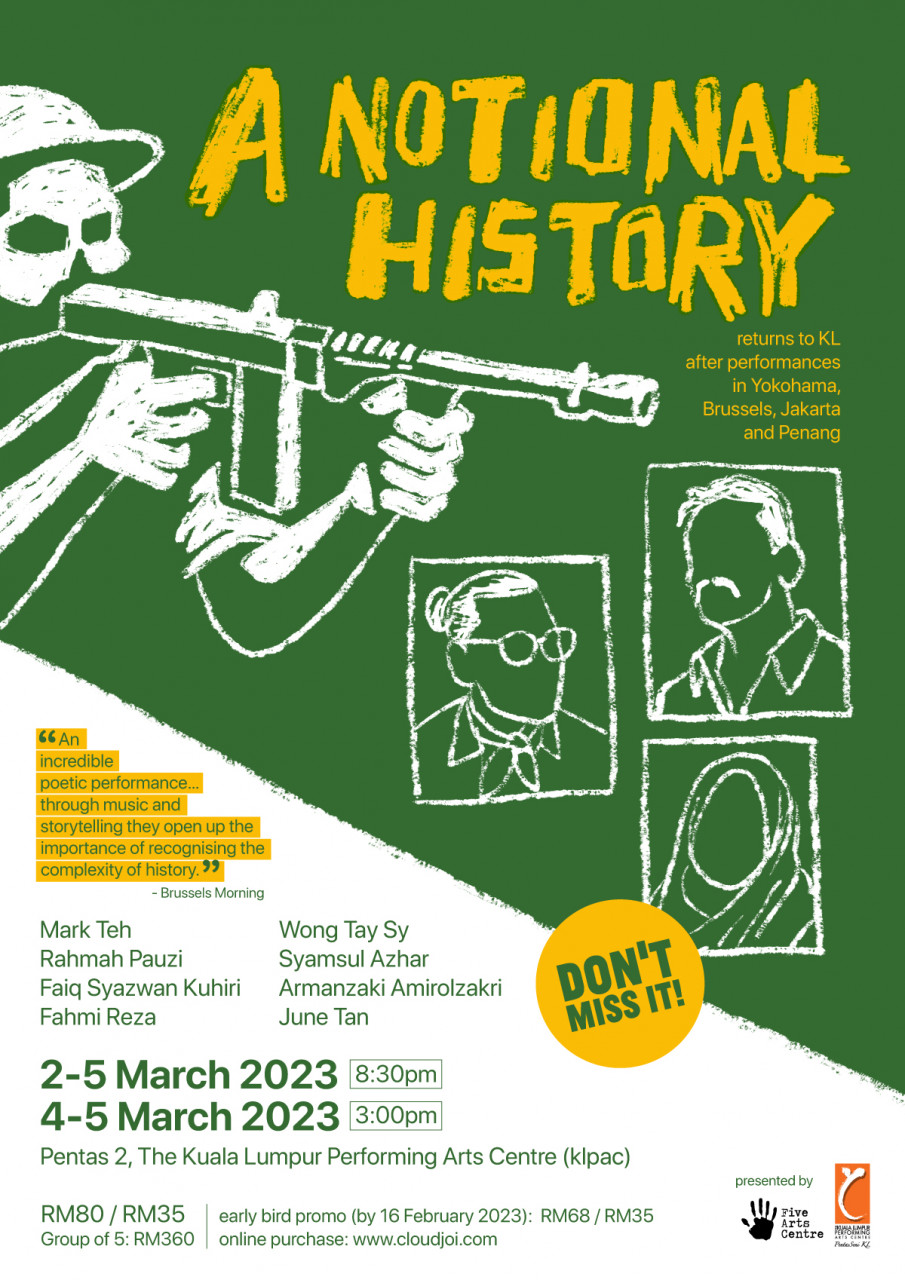
The documentary film was ‘introduced’ to Malaya by the Malayan Film Unit – established in the 1940s as the first film propaganda unit in the British Empire, and of course they produced many pedagogical and propaganda films, from teaching locals how to brush their teeth properly to covering events like Merdeka, always with a stylised and authoritative British voiceover.
So, this supposedly ‘truth-seeking’ form – the documentary – within the Malayan context, was introduced as a tool of the British Empire.
As a team, we are aware of the power of documentary, as well as this problematic history, so hopefully it makes our use of this form more nuanced and critical.
I should also add that as with everything – it is not so black and white… the MFU eventually became Filem Negara, and it trained many of the pioneering filmmakers of the ‘P. Ramlee’-era such as S. Roomai Noor and others.
TV: The play does not shy away from contentious subject matter in Malaysian history. What were the discoveries or some of the biggest questions the play asks or attempts to answer?
MT: There are many, many things obviously… and we have covered this research for a very long time.
So, at this point, I will just say one thing: which is when comparing the two history textbooks (pre-2020, and post-2020), all the contents have been updated, and things that were left out of the earlier textbook, such as the 1947 nationwide hartal, has been included in the new one.
So, an acknowledgment of some rakyat-centric and even leftist roles in the struggle towards independence. All the chapters in the new textbook have also been updated – except one, the chapter about the Malayan Emergency and the threat of the Communists.
It brought to us the question… as things change, as governments change, as prime ministers change, as textbooks change, as generations change – what remains unchangeable? And why?
And if something remains ‘unchangeable,’ then perhaps it has a particular power that makes it worth investigating. – The Vibes, March 2, 2023
A Notional History goes on stage from March 2-5 at the Kuala Lumpur Performing Arts Centre (KLPac). For more details and ticket purchases, visit: https://www.cloudjoi.com/shows/a-notional-history148



_with_A_Notional_History_team_featuring_Rahmah_Pauzi_(seated_left)__Fahmi_Reza_and_musician_Faiq_Shazwan_Kuhiri__Photo_courtesy_of_Five_Arts_Centre__Bea_Borgers.jpg)
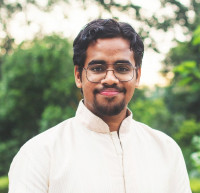
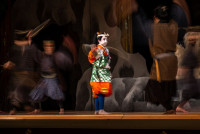
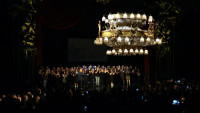



.jpg)



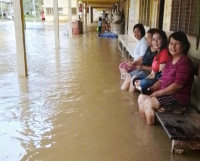
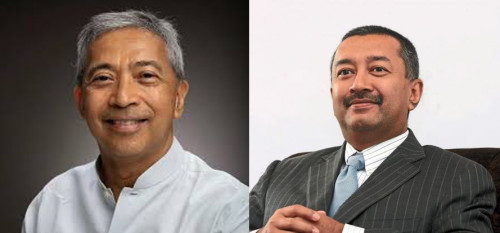
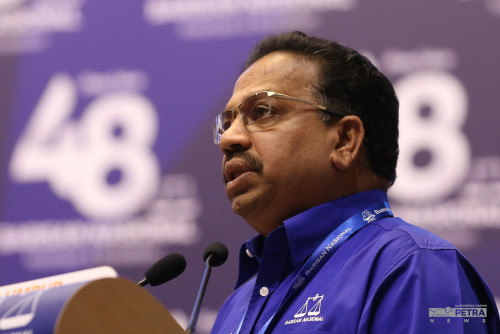
.jpg)
